1. Muhammad Ali
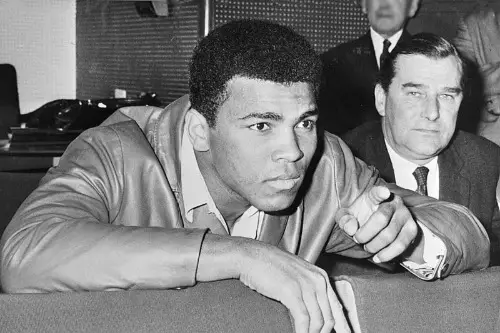
Muhammad Ali isn’t just a sports legend—he’s a cultural icon whose life was marked by controversy and conviction. Known as “The Greatest,” Ali’s boxing skills and charisma made him a household name. But it was his bold personality and activism that set him apart. Ali refused to fight in the Vietnam War, citing his religious beliefs and opposition to racial injustice. His stance cost him his heavyweight title and years of his career, but it also made him a hero to many who saw him as a symbol of resistance and integrity.
However, Ali wasn’t universally admired during his prime. Many criticized his refusal to serve in the military, labeling him unpatriotic. His brash attitude, from taunting opponents to declaring himself the greatest, rubbed others the wrong way. Over time, his legacy softened, with even former critics celebrating his courage and contributions to social justice. But in his day, Ali was as divisive as he was inspirational—a figure who forced America to confront uncomfortable truths about race, war, and identity.
2. Donald Trump

Donald Trump is the embodiment of division in modern American politics, according to The Washington Post. Before entering the political arena, he was already a controversial figure as a real estate mogul and reality TV star, admired for his business acumen but criticized for his brash personality and self-promotion. When he announced his candidacy for president in 2015, few could have predicted the seismic shift his campaign would create. Supporters see him as a disruptor who broke through Washington’s gridlock, while critics argue he exacerbated political divides and attacked democratic norms.
His presidency was marked by polarizing policies, from the travel ban on predominantly Muslim countries to his handling of the COVID-19 pandemic. Trump’s frequent use of Twitter to bypass traditional media channels and speak directly to his base both thrilled and horrified the nation. Even in post-presidency, his grip on the Republican Party and continued influence over millions of voters make him a uniquely divisive figure. Some hail him as a patriot who fought for “forgotten Americans,” while others view him as a demagogue whose legacy will take decades to fully unpack.
3. Marilyn Monroe

Marilyn Monroe’s life and legacy continue to fascinate and divide. For some, she is the quintessential Hollywood starlet—a beauty and talent who achieved global fame and left behind an iconic cultural imprint. She’s remembered for her roles in classics like Some Like It Hot and her seductive rendition of “Happy Birthday” to President John F. Kennedy. Her beauty, charisma, and vulnerability turned her into a symbol of the American Dream.
But Monroe’s story also raises tough questions about fame, exploitation, and mental health, as Vanity Fair reveals in an article about her. Critics argue that her legacy is complicated by the way Hollywood and the media commodified her image, reducing her to a sex symbol while ignoring her depth as a performer and person. Her tragic death at age 36 only added to her mystique, leaving room for conspiracy theories and debates about who she really was beneath the glittering surface. Is she a feminist icon who challenged societal norms, or a tragic figure emblematic of the cost of celebrity? Depends on whom you ask.
4. Kanye West
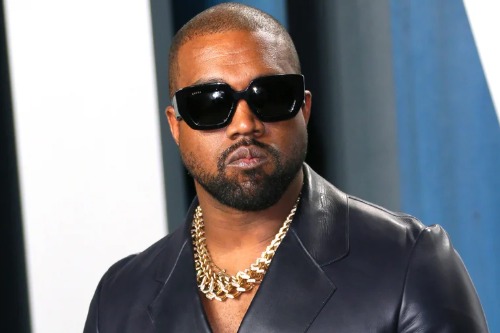
Few figures in music—or any industry—ignite as much heated discussion as Kanye West. As a producer and rapper, his contributions to music are undeniable. Albums like The College Dropout and My Beautiful Dark Twisted Fantasy have been hailed as masterpieces that redefined hip-hop. Kanye’s genius as an artist is revered by fans who see him as a boundary-pusher willing to take risks and challenge conventions.
But then there’s Kanye, the provocateur. His public persona often overshadows his music, from interrupting Taylor Swift at the 2009 VMAs to wearing a MAGA hat and allegedly makin anti-semitic comments, according to the BBC. His recent forays into politics and public outbursts have alienated fans and fueled criticism that he is more interested in spectacle than substance. Some view him as a misunderstood genius; others see him as an attention-seeker who thrives on controversy. Love him or hate him, Kanye forces us to confront the blurred line between artistry and ego.
5. Elvis Presley

Elvis Presley, often called the “King of Rock and Roll,” transformed music and culture in the 20th century. His groundbreaking fusion of rock, blues, and gospel, along with his charismatic performances, made him a global sensation. Elvis’s swiveling hips and rebellious energy challenged societal norms and introduced a new era of youth culture. For many, he’s a pioneer who brought rock ‘n’ roll to mainstream America and a symbol of the American Dream.
However, Elvis’s legacy is not without criticism. Detractors argue that he appropriated Black music and profited from a style rooted in African American culture while receiving disproportionate credit for its popularity. His controversial relationship with Priscilla, who was just a teenager when they met, TIME Magazine reveals, only fuels the critics. His later years, marked by drug addiction and declining health, also tarnished his image. Whether you see Elvis as a cultural innovator or a symbol of cultural appropriation depends on your perspective, but his place in history remains undeniable.
6. Elon Musk

Elon Musk is hailed as a modern-day visionary by some and a reckless billionaire by others. As the founder of companies like Tesla, SpaceX, and Neuralink, Musk has revolutionized industries and pushed the boundaries of technology. Fans see him as a man on a mission to save the planet through renewable energy and colonize Mars to ensure humanity’s survival. His achievements, like launching reusable rockets and making electric vehicles mainstream, are undeniably impressive.
But Musk’s critics argue that his antics often overshadow his accomplishments, EuroNews reports. From his unpredictable tweets that affect stock markets to his controversial stances on issues like COVID-19 restrictions, Musk is no stranger to backlash. Employees at his companies have reported grueling working conditions, and some question whether his ambitions are grounded in reality or hubris. Whether you consider him a genius innovator or a problematic figure with too much influence, Musk is undoubtedly one of the most polarizing figures of our time.
7. Kim Kardashian

Kim Kardashian is the poster child for modern celebrity culture, and few public figures inspire as much debate about fame and its merits. Rising to fame through a combination of a leaked personal tape, reality TV (Keeping Up with the Kardashians), and social media mastery, Kim turned her name into a billion-dollar empire. Her fans argue that she is a savvy businesswoman who has redefined what it means to be an influencer and a brand.
However, critics often dismiss her as the epitome of superficiality and question what, if anything, she truly contributes to society. Her controversial cultural moments, such as wearing traditional garments as fashion statements or the debate over her body image impact, add fuel to the fire. Recently, her work in criminal justice reform has earned her respect from some corners, proving that she’s more than just a reality star. Still, Kim remains a polarizing figure, embodying both the allure and excess of modern celebrity.
8. LeBron James
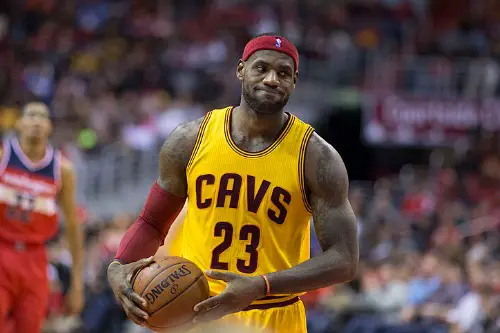
LeBron James is one of the greatest basketball players in history, but his influence extends far beyond the court. To his supporters, he’s an inspirational figure—a kid from Akron, Ohio, who became a global icon. With four NBA championships, numerous MVP awards, and a relentless drive to stay at the top, LeBron’s talent and work ethic are undeniable. Beyond basketball, his philanthropy, particularly through his I PROMISE School for at-risk youth, has cemented his legacy as a role model.
However, not everyone sees LeBron in such a favorable light. Critics accuse him of being overly political, particularly for his outspoken stance on social justice issues, such as the Black Lives Matter movement and criticism of police brutality. Some argue that he should “stick to sports,” a sentiment he has famously dismissed. Others find fault in his on-court theatrics, branding him as overly dramatic or self-centered. Regardless of where you stand, LeBron’s ability to dominate the headlines proves his place as one of the most polarizing figures in sports and beyond.
9. Hillary Clinton

Hillary Clinton has spent decades in the public eye, and nearly every step of her journey has been polarizing. As First Lady, she redefined the role by taking an active part in policymaking, championing healthcare reform, and advocating for women’s rights globally. Later, as a senator and Secretary of State, she continued to break barriers, becoming the first woman nominated for president by a major political party. To her supporters, she’s a trailblazer who has endured relentless criticism with grace.
But her critics argue she embodies political elitism, pointing to controversies like her handling of the Benghazi attack, the use of a private email server, and perceptions of dishonesty. The 2016 presidential election, where she lost to Donald Trump despite winning the popular vote, only intensified the debates surrounding her legacy. For some, she’s a symbol of resilience and progress; for others, she represents a political system that’s out of touch with ordinary Americans. Hillary Clinton’s ability to inspire such passionate opinions on both sides is what makes her so polarizing.
10. Britney Spears
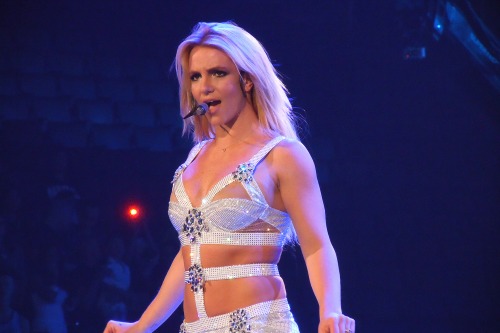
Britney Spears has been a defining figure in pop culture since the late 1990s, but her life and career have been a rollercoaster of adoration and controversy. From her breakout with “…Baby One More Time” to becoming a global superstar, Britney was America’s sweetheart. Fans loved her catchy hits, iconic performances, and girl-next-door charm. Her 2007 public breakdown, however, shifted the narrative, making her a tabloid fixture and sparking conversations about the pressures of fame and mental health.
Her conservatorship battle reignited debates about her life, with fans rallying around the #FreeBritney movement to support her fight for autonomy. While many see her as a victim of exploitation by the media and those closest to her, critics argue she has benefited from a carefully crafted image. Today, Britney’s story is one of resilience and redemption to some, and a cautionary tale about the cost of stardom to others. Whether celebrated or scrutinized, her name sparks strong reactions everywhere.
11. Colin Kaepernick
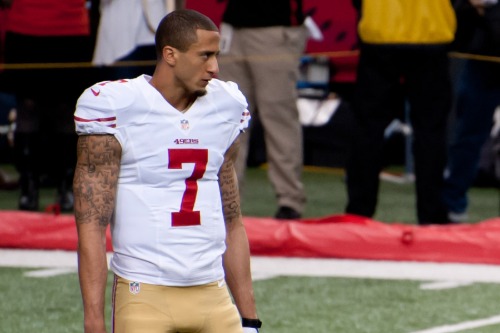
Colin Kaepernick went from an NFL quarterback to a global symbol of protest and activism. In 2016, he began kneeling during the national anthem to protest police brutality and systemic racism, igniting a nationwide conversation about patriotism, free speech, and racial injustice. Supporters see him as a courageous leader who sacrificed his career to fight for a cause greater than himself. His Nike partnership and charitable work only reinforced his status as a champion of social justice.
Critics, however, argue that his actions disrespected the flag and the military, with some accusing him of being divisive. The controversy over whether Kaepernick was blackballed by the NFL has only added fuel to the fire. To some, he’s a hero standing against oppression; to others, he’s a provocateur whose methods alienated millions. Regardless of perspective, Kaepernick’s decision to take a knee forever changed the intersection of sports and activism.
12. Howard Stern
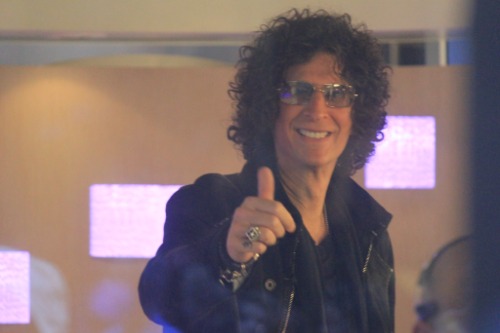
Howard Stern has been shocking—and entertaining—audiences for decades, earning him the title of the “King of All Media.” Stern revolutionized radio with his no-holds-barred style, tackling taboo topics, pushing boundaries, and delivering outrageous humor. His loyal fanbase admires his candor and willingness to say what others won’t, viewing him as a trailblazer in entertainment.
But Stern’s critics have long accused him of being crude, offensive, and exploitative. From his raunchy on-air antics to his controversial interviews, many view him as a provocateur who thrives on shock value at the expense of others. Over the years, Stern has softened his approach, conducting more thoughtful interviews and addressing his own evolution. Still, he remains a divisive figure—either a genius who redefined broadcasting or a provocateur who crossed too many lines.
13. Madonna
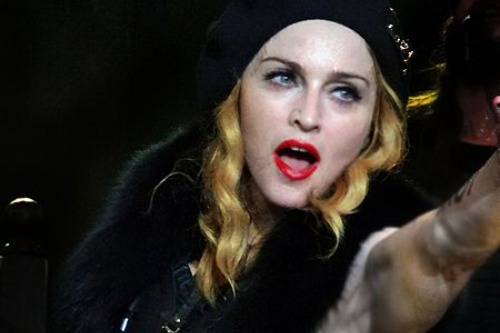
Madonna has been a cultural lightning rod since the 1980s, earning her the title of the “Queen of Pop.” Known for pushing boundaries with her music, performances, and style, Madonna redefined what it meant to be a female pop star. Hits like Like a Virgin and Material Girl became instant classics, and her provocative performances challenged societal norms around sexuality and religion. Her ability to constantly reinvent herself has kept her relevant for decades, making her an icon of empowerment and reinvention to her fans.
But with Madonna, controversy is never far behind. Critics accuse her of being attention-seeking, with many questioning whether her provocations are meaningful statements or calculated stunts to remain in the spotlight. From her infamous 1989 Like a Prayer video to kissing Britney Spears and Christina Aguilera at the 2003 VMAs, her actions have repeatedly sparked outrage. Some view her as a trailblazer breaking taboos, while others see her as a symbol of excess and shock-for-shock’s-sake behavior. Love her or hate her, Madonna’s influence on pop culture is unparalleled, and her ability to ignite passionate debate has never waned.
14. Michael Jackson
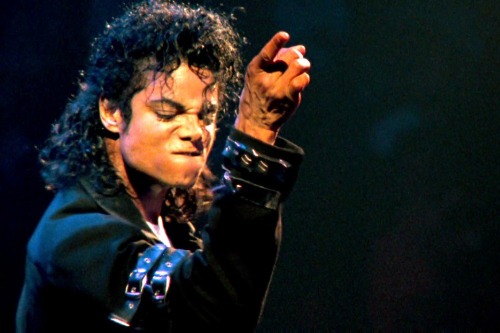
Michael Jackson, the “King of Pop,” remains one of the most polarizing figures in entertainment history. His unparalleled talent is indisputable, with iconic albums like Thriller and Bad cementing his place as one of the greatest performers of all time. Fans celebrate his revolutionary music videos, groundbreaking dance moves, and humanitarian efforts, arguing that his genius transcends any controversy.
But Jackson’s life was as complex as his legacy. Allegations of child abuse haunted him for decades, sparking widespread debate about his personal life. His eccentric behavior, from sleeping in an oxygen chamber to building Neverland Ranch, fueled speculation about his mental health. After his death in 2009, documentaries like Leaving Neverland reignited discussions about his legacy. To some, Jackson is an unparalleled artist whose life was misunderstood; to others, he is a troubling figure whose dark allegations cannot be overlooked.
15. Oprah Winfrey
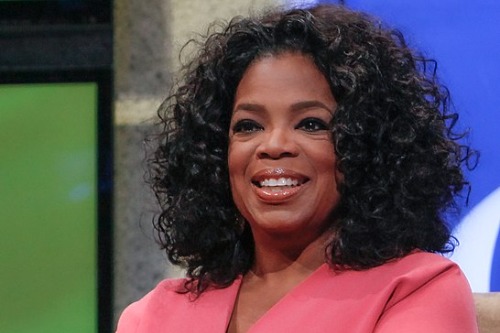
Oprah Winfrey is one of the most influential figures in American history, but her widespread influence is not without its detractors. She rose from poverty to become the queen of daytime television, using The Oprah Winfrey Show to address everything from relationships to racial injustice. For millions, Oprah represents hope, resilience, and empowerment, especially for women and people of color. Her book club endorsements alone can turn novels into bestsellers overnight, and her philanthropy has changed lives worldwide.
Yet, not everyone is an Oprah fan. Critics accuse her of promoting pseudoscience and giving platforms to controversial figures, like Dr. Phil and Dr. Oz, who have faced backlash for questionable medical advice. Others argue that her immense cultural power sometimes perpetuates an idealized, consumer-driven vision of self-improvement. Regardless of these critiques, Oprah’s legacy as a trailblazer and media mogul continues to provoke both admiration and scrutiny.
16. Steve Jobs

Steve Jobs revolutionized technology and how we interact with the world, but his leadership style and personality made him a polarizing figure. As the co-founder of Apple, Jobs introduced game-changing products like the iPhone, iPad, and MacBook, earning admiration as a visionary who shaped the modern tech landscape. His ability to marry design with functionality set Apple apart, and his legacy as an innovator is celebrated by millions.
But Jobs’s reputation as a leader was far from spotless. Employees and collaborators often described him as demanding, abrasive, and prone to emotional outbursts. Critics argue that his single-minded pursuit of perfection came at the expense of the people who worked for him. Others question whether Apple’s success was entirely his doing or a product of the talented team around him. Despite the criticisms, Jobs’s influence on technology, business, and culture ensures he remains one of the most debated figures of our time.
17. Rosa Parks

Rosa Parks is celebrated as a hero of the Civil Rights Movement, but even her legacy has not been immune to debate. Known as the “mother of the freedom movement,” Parks’s refusal to give up her seat on a Montgomery bus in 1955 sparked a wave of activism that led to significant progress in racial equality. Her courage and dignity made her an enduring symbol of resistance, inspiring countless others to fight for justice.
However, some critics argue that the focus on Parks as a singular figure oversimplifies the broader civil rights struggle. They point out that others, like Claudette Colvin, made similar stands before Parks but didn’t receive the same recognition. Additionally, some have questioned whether Parks’s carefully planned protest, supported by civil rights leaders, detracts from her spontaneity and grassroots appeal. While these debates exist, Parks’s impact on American history is undeniable, and her role as a catalyst for change continues to inspire new generations.


